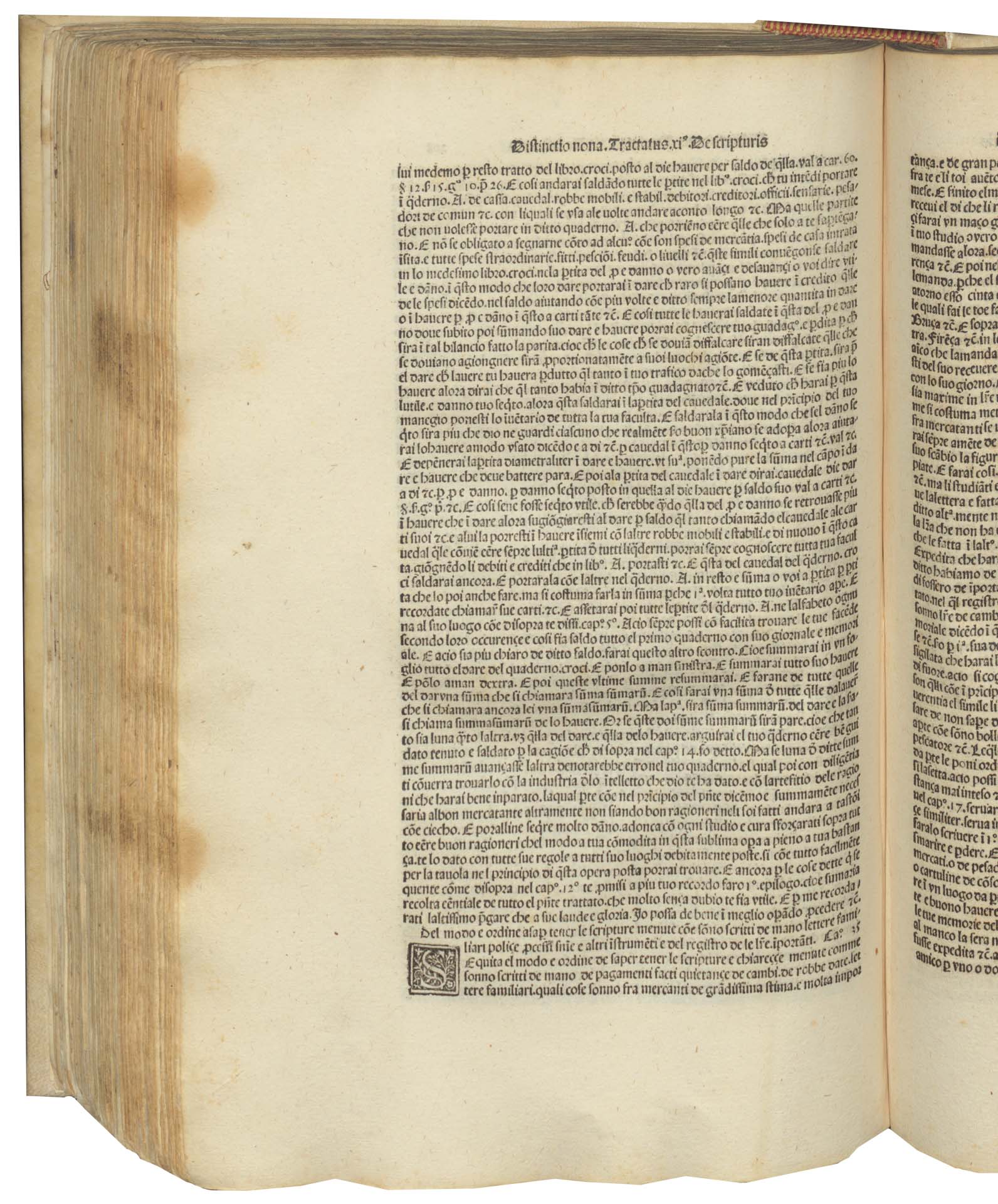Paper: materiality and trade
39. Purchase of stationery. Consignment of 511.13 ducats
40. Acknowledgement of receipt, issued by Afonso Ribeiro
41. Order for the delivery of money to the gatekeeper of the Tangier exchequer
42. Order to the exchequer of Azemmour for the purchase of paper and ink
43. Record of paper purchased from Bartolomeo Marchionni
44. Excerpt from the inventory of the factory in Cochin, India.
Paper and communication: lexicography and translation
45. Excerpt from the journal of the voyage of Vasco da Gama to India (1497–99)
47. Description of Persia by Khwâjè Pir Qoli
48. Arabic-Italian dictionary by Pietro Niccodemi
49. Quittance and letter of payment issued by Francisco de Sagastizábal
50. Records of a request to the Consulate of the Sea in Pisa
Paper, politics and communication
51. Somma di arithmetica, geometria, proporzioni e proporzionalità
53. Letter from Rosso di Strozza Strozzi to Luca del Sera
54. Memorandum by Aliso Alberti, Luca del Sera and Guido di Matteo Caccini to Baldo Villanuzzi
55. Registry with the delivery of copper and silver to Fugger and the Höchstetters of Augsburg
56. News about the victory in Lepanto
57. News on an encounter with the Turkish navy in Calabria.
58. A letter with news from Transylvania
Documenting protocols, paralinguistic components and iconic signifiers
51. Somma di arithmetica, geometria, proporzioni e proporzionalità
St 10245
SENDER: Luca Pacioli
GENERAL INFORMATION: Luca de Burgo S. Sepulchri [Luca Pacioli], Somma di arithmetica, geometria, proporzioni e proporzionalità (Venice: Paganinus de Paganinis, 1494).

A classic in several disciplines, in a single volume Pacioli combines Euclidean geometry, mathematics, accountancy and other methods used in the registration of information – numerical and otherwise – for the administration and control of a business using double-entry bookkeeping. Thanks to authors like Cotrugli and Pacioli, this system would evolve and eventually spread from the south of Europe to the northwestern regions of the continent, in parallel with the gradual displacement of geopolitical and economic power from the Mediterranean to the North Atlantic between the end of the fifteenth and the early seventeenth centuries. The founding role and influence ascribed to Italian methods and the authors that popularised them was manifest in documents like the inventory of Pieter Barentsz in Amsterdam, who in 1640 still owned a number of books about ‘Italian accounting’ (see doc. 71 below), and, well before that, in the manuscript Venezianische Musterbuchhaltung (On Venetian Bookkeeping) penned by Fugger’s chief accountant (see doc. 70 below). In these pages Pacioli explains systems for the classification and administration of all sorts of papers – in other words, different records of information which are not directly part of the semiotic and mathematical system of accounting, but are nevertheless a fundamental part of the documentary constellation, i.e., the information system, required to run a large business. Rhetoric meets algebra and communication techniques with the use of paper-based documents in sections like Pacioli’s chapter 35: ‘Del modo e ordine asaper tener le scripture menute come sono scritti de mano lettere familiari ... e altri instrumenti e del registro de le lettere importanti’ (208v) (‘How and in what order papers should be kept, such as manuscripts, family letters, policies, processes, judgements and other instruments of writing and the record book of important letters’).
(José María Pérez Fernández)
Paper: materiality and trade
39. Purchase of stationery. Consignment of 511.13 ducats
40. Acknowledgement of receipt, issued by Afonso Ribeiro
41. Order for the delivery of money to the gatekeeper of the Tangier exchequer
42. Order to the exchequer of Azemmour for the purchase of paper and ink
43. Record of paper purchased from Bartolomeo Marchionni
44. Excerpt from the inventory of the factory in Cochin, India.
Paper and communication: lexicography and translation
45. Excerpt from the journal of the voyage of Vasco da Gama to India (1497–99)
47. Description of Persia by Khwâjè Pir Qoli
48. Arabic-Italian dictionary by Pietro Niccodemi
49. Quittance and letter of payment issued by Francisco de Sagastizábal
50. Records of a request to the Consulate of the Sea in Pisa
Paper, politics and communication
51. Somma di arithmetica, geometria, proporzioni e proporzionalità
53. Letter from Rosso di Strozza Strozzi to Luca del Sera
54. Memorandum by Aliso Alberti, Luca del Sera and Guido di Matteo Caccini to Baldo Villanuzzi
55. Registry with the delivery of copper and silver to Fugger and the Höchstetters of Augsburg
56. News about the victory in Lepanto
57. News on an encounter with the Turkish navy in Calabria.
58. A letter with news from Transylvania
Documenting protocols, paralinguistic components and iconic signifiers

